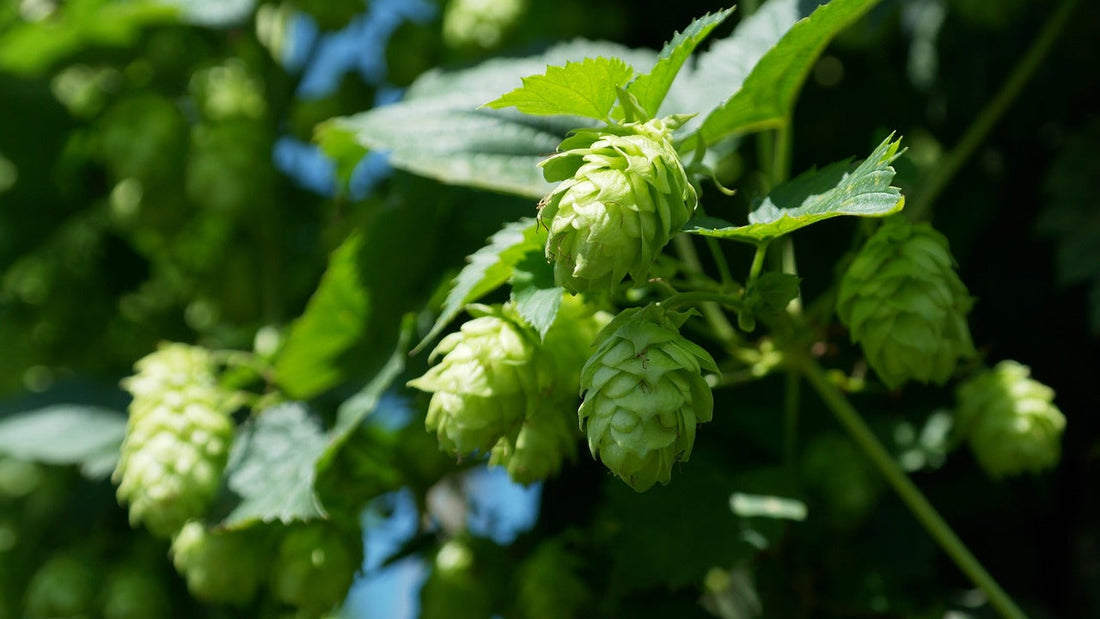
What are Hops?
What are Hops?
In the realm of brewing, there’s one ingredient that plays a pivotal role in shaping the flavours, aromas, and character of your favourite beers – hops. These small, cone-shaped wonders are the unsung heroes behind the bitter kick and delightful bouquet in your pint. Dive into the fascinating world of hops, uncover their origins, their impact on beer, and why they’re an essential ingredient in the art of brewing.
Hops (Humulus lupulus) are the flowers of a climbing plant that belong to the hemp family. While their appearance might seem modest, their influence on the brewing process is nothing short of remarkable. They are considered the botanical backbone of beer. Historically hops were used primarily for their preservative qualities, helping to extend the shelf life of beers. However, over time, their mighty array of flavours and aromas became a key factor in defining the diverse range of beers we enjoy today.
What are Hops for?
- Bitterness Balancing Act: One of the primary roles of hops is to balance the sweetness of malted grains by imparting bitterness to the beer. This bitterness comes from compounds called alpha acids found in the hops.
- Aroma and Flavour Symphony: Beyond bitterness, hops are responsible for adding a spectrum of flavours and aromas to the beer. From floral and herbal notes to citrusy and fruity hints, the diverse range of hop varieties allows brewers to craft beers with unique profiles.
- Preservation and Stability: Hops have natural antibacterial properties that help prevent the growth of unwanted microorganisms in beer, contributing to its overall stability and quality.
How do Hops make different flavours?
Just as different grape varieties produce unique wines, various hop varieties create distinct beer styles. With an ever-expanding collection of hop strains, brewers have an extensive palette to create diverse beer experiences. Some hops are known for their earthy and spicy characteristics, while others exude tropical fruitiness or piney freshness. Each variety brings its own flair to the brewing process.
Brewers carefully select hops based on the desired flavour, aroma, and bitterness profile of the beer they’re crafting. The timing of hop additions during the brewing process also plays a crucial role. Hops added early in the boil contribute more bitterness, while late additions or dry hopping result in enhanced aroma and flavour without the bitterness.
Where do hops grow?
While hops are cultivated in various parts of the world, some regions are known for producing exceptional quality hops due to their climate and soil conditions. Australia, for instance, has emerged as a notable hop-growing region, yielding hops that reflect the country’s unique terroir and contributing to the craft beer movement, while New Zealand has been renowned for high quality hops for years!
What can you use Hops for?
While hops are synonymous with brewing, their uses extend beyond the world of beer. They’ve been employed for centuries for their potential health benefits and calming properties. Hops are also found in herbal teas, extracts, and even aromatherapy products.
Hops, those unassuming little cones, are an integral part of the brewing world, adding complexity, character, and balance to the beers we know and love. Their journey from ancient preservative to modern flavour enhancer highlights their importance in the evolution of brewing. So, the next time you savor your favourite brew, take a moment to appreciate the artistry of hops that transforms simple ingredients into a symphony of taste and aroma.
